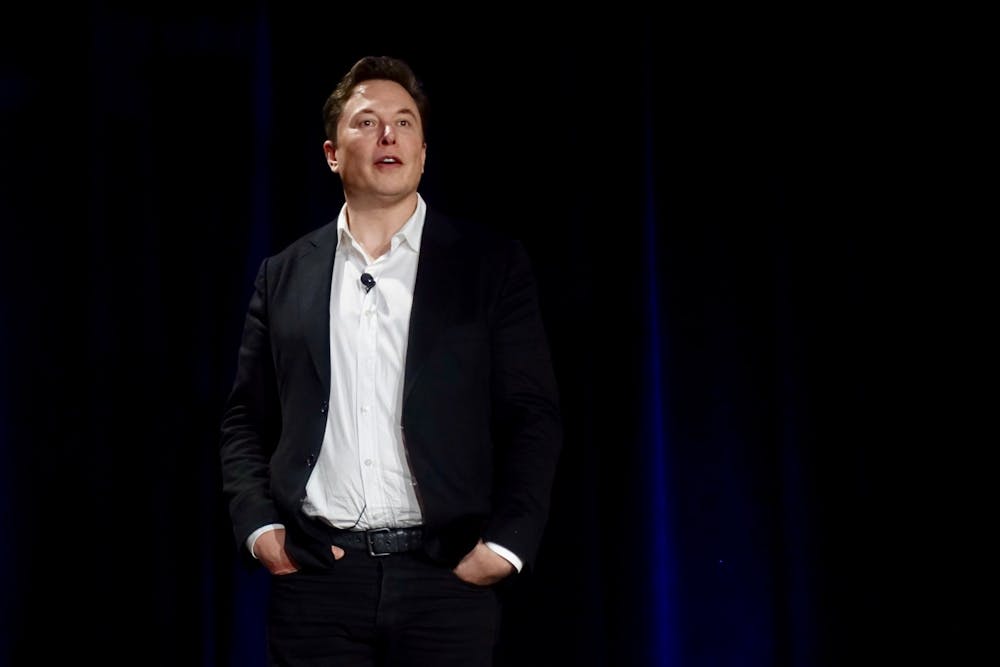
Elon Musk. Jeff Bezos. Michael Bloomberg. Warren Buffet. These tycoons of the 21st century have revolutionized the world of tech, finance, and beyond. Their pursuits have brought them more than just notoriety, amassing them astronomical fortunes and branding them as the world’s wealthiest. However, their commonalities do not end at their ultra-wealthy status. Aside from their claim to fame, they have paid next to nothing in federal income taxes.
While it may seem preposterous that there are loopholes for America’s richest tax bracket to avoid paying its fair share, this shocking truth is routine for the U.S.’s ultra-wealthy. With midterms quickly approaching, our country needs a change in the tax code to renew citizens’ faith in the values that our Constitution boasts. Fair taxation is paramount to these values.
Contrary to popular belief, many elite families do not derive their income from a 9-to-5 job or a monthly paycheck. Instead, they look towards investments, such as real estate or stocks, to generate their income. When these investments soar in value, individuals are rewarded with capital gains. The unfortunate reality is that these capital gains do not qualify as taxable income unless the assets are sold. This delegates an outrageous amount of power to wealthy individuals who can essentially control how much they are taxed by choosing when — or if — they will sell their assets.
The ultra-wealthy have capitalized off this 100% legal mechanism to bypass the tax system, accumulating egregious amounts of wealth whilst paying almost zero in federal income taxes. In fact, records published by ProPublica show that from 2014-2018, the 25 richest Americans collectively accrued $401 billion in wealth yet paid a true tax rate of 3.4%, significantly lower than that of a teacher, firefighter, electrician, or a cop. Even our Pledge harps on themes of “liberty” and “justice,” parroting that we are “one nation” and “indivisible,” yet in seeing the blatant inequality that has occupied America’s tax code, I seriously question where said “justice” is. It is yet another painful reminder that these democratic values are afforded to the privileged, at the expense of working-class Americans.
With unrealized investment gains passed down to heirs, this vicious cycle has created lineages of generational wealth. America’s inability to take action has funneled a ludicrous amount of power into a select few, demanding a common-sense change.
Cue President Biden’s “Billionaire Minimum Income Tax” (BMIT) policy proposal – an economically stable, popularly supported, bipartisan solution to America’s unjust tax code. The proposal applies to households earning over $100 million and advocates for a minimum tax rate of 20% on their income, including unrealized investment income. While BMIT would only apply to the top 0.01% of U.S. earners, it is predicted to generate $360 billion over the next decade. For reference, this revenue amount could allow us to reduce the national deficit, curb inflation, and simultaneously address several social issues.
Biden’s proposal does more than bring much-needed scrutiny to this detrimental tax disparity. It is also a means of safeguarding democracy. By aiming to undo the political and social ramifications of an unequal tax rate, the BMIT is redefining income equality not as supplementary to American democracy, but rather a trademark of it. Various billionaires and leaders around the world cite wealth taxation as a much-needed solution, dismissing arguments that it would drive the rich overseas as ridiculous. Even Penn faculty members have deemed paying your “fair share” as an opportunity to fulfill civic responsibilities.
Moreover, those who have expressed opposition fail to see that wealth taxation is an immutable constant in our nation’s history. From Abraham Lincoln to Thomas Jefferson, our greatest symbols of patriotism have always esteemed wealth taxation as a defense against aristocratic tyranny. Even Hamilton, a member of the elite himself, touted the need to place equal burdens on the wealthy via a progressive wealth tax. Wealth taxation has left behind a legacy revered by the very pioneers of American democracy, those who ignited wars in the name of liberty and justice. In this regard, it would be absurd to disregard the merits of the BMIT. It is simply our failure to do so that has resulted in today’s disproportionate distribution of power and wealth.
Our nation has been at the mercy of income inequality for a long time, inspiring a chasm that corrodes the very sanctity of democracy. As students, we have the power to change the narrative and fight for equality. Regardless of whether you can vote, there are still several mechanisms to make your voice heard. Request that your local representatives publicly endorse and co-sponsor Rep. Cohen and Rep. Beyer’s BMIT legislation or urge your senators to co-sponsor similar legislation, such as Senator Ron Wyden’s (D-OR) Billionaires Income Tax. You can even brand the BMIT as an important source of revenue for your local politicians to pursue their policy goals. And of course, vote if you can! With midterm elections around the corner, the upcoming makeup of Congress will greatly influence the livelihoods of millions of Americans.
The time is now for us to support BMIT.
RIA ELLENDULA is a rising sophomore studying Political Science from Northville, Michigan. Her email address is riaell@sas.upenn.edu.
The Daily Pennsylvanian is an independent, student-run newspaper. Please consider making a donation to support the coverage that shapes the University. Your generosity ensures a future of strong journalism at Penn.
Donate






